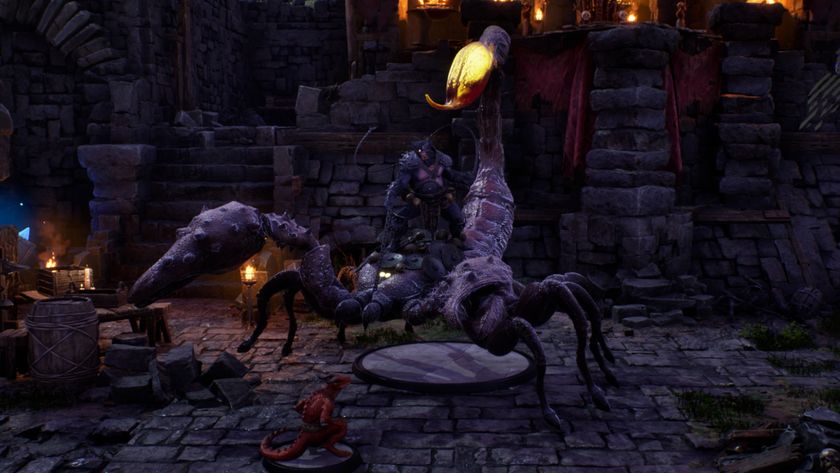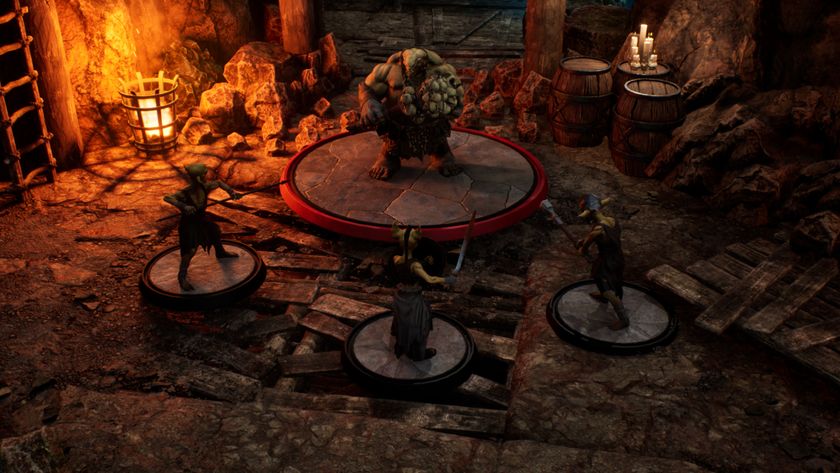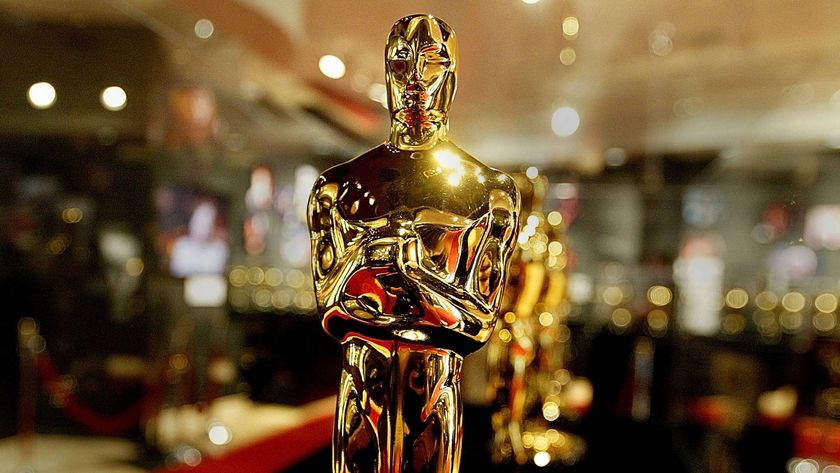Divinity Original Sin: The Board Game plunged Larian into development hell … and it’s all the better for it: “We’ve made the kind of game that we would love”
Interview | Larian Studios' Kieron Kelly talks Divinity Original Sin: The Board Game
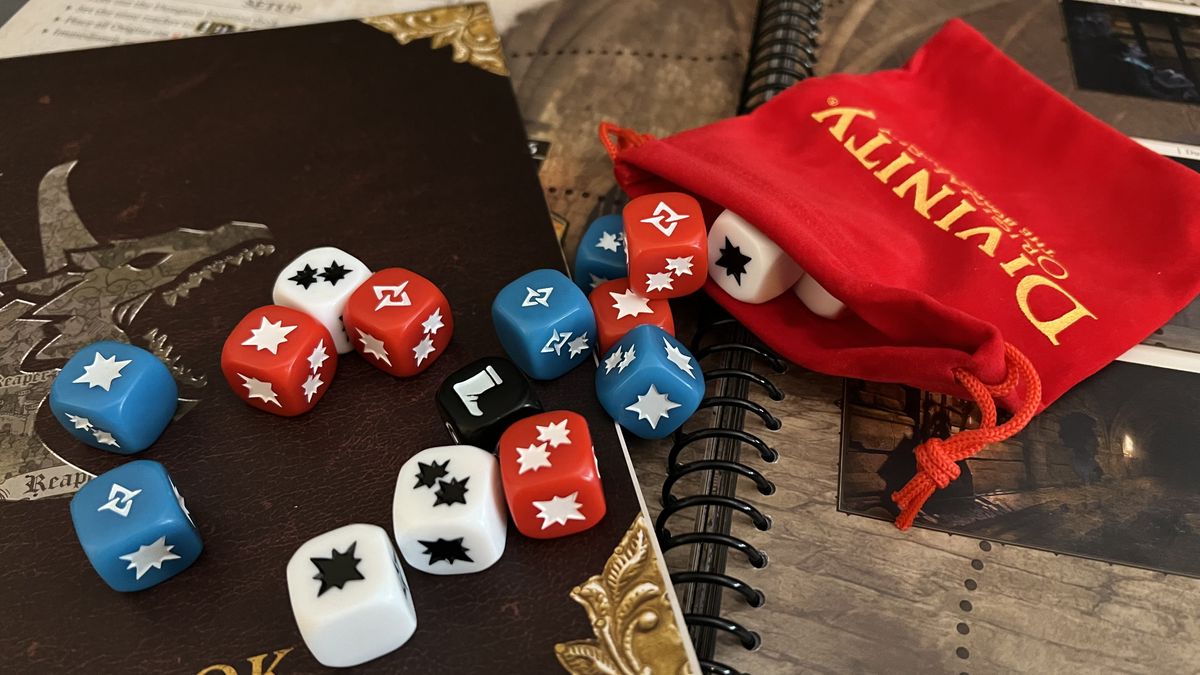
The tabletop adaptation of Divinity: Original Sin started as many great things do – its creators just felt like doing it. At least, this was the justification initially delivered to me by Larian’s publishing coordinator, Kieron Kelly: “We wanted to make a board game … it was never a question.”
The folks at Larian certainly achieved this goal. Insofar as our review is concerned, they’ve exceeded it and wound up being a serious best board games contender. Though this wasn’t achieved without first enduring a chaotic six-year development process plagued by roadblocks, redesigns, and team recompositions.
With such a storied past, it’s hard to imagine how the project avoided entering the annals of tabletop gaming history as a catastrophic flop – an awkward blemish on the reputation of a studio that has otherwise been smashing it in the past few years. To clear up this mystery, Kieron took the time at a recent launch event to talk me through everything Divinity Original Sin: The Board Game – including the tragic (but necessary) exclusion of barrelmancy.
Back to the Source
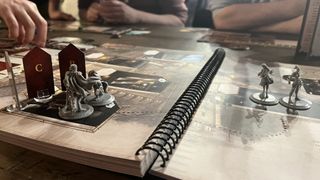
Long-time fans of Larian Studios’ brand of story-rich CRPGs might remember when Divinity Original Sin: The Board Game was first announced on Kickstarter back in 2019. The project raised over $1.8 million: evidence that the appetite to return to Rivellon was there. Though fans would remain hungry, as it wasn’t until the tail end of 2023 that backers started to receive copies of the game.
How do we refine the game without watering it down? Without losing that Divinity identity?
In the parallel world of video game development, a botched launch has a non-zero chance of being salvaged with patches and some stellar community management. However, the physicality of tabletop games blocks them from receiving that Cyberpunk 2077-esque comeback – what’s shipped is what’s shipped.
So, with such a wildly successful Kickstarter campaign and the legacy of a beloved IP behind it, the stakes were high to get Divinity Original Sin: The Board Game right.“The backers were the people we were making this game for” Kieron explained, “There was so much weight of responsibility to get it right, which is one of the main reasons why we delayed the game.“
Much of the team’s struggle lay in wrestling with the unique challenges of the board game format, and that concern was at the core of the choice to overhaul parts of the project numerous times across the development process: “The biggest change was honestly, we've got way too much mental load on the player – how do we fix that? How do we refine the game without watering it down? Without losing that Divinity identity?”
Diamonds under pressure
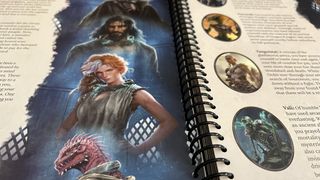
Primarily, the designers were left juggling how best to represent the kinds of branching narratives and illusion of limitless choice present in the Divinity: Original Sin and Baldur’s Gate series without bogging players down in difficult-to-juggle mechanics.
The narrative, the combat — there's so many things we can be proud of.
This process required them identifying and accepting what, for the player’s own benefit, was destined to end up on the cutting room floor. In Kieran’s words, “there are elements that would have been amazing to have in — that feel like Divinity – like the crafting system. We had an entire crafting system in the game that ultimately was a level too deep in terms of just adding complexity to experience. Same with barrels, barrels were a huge thing but they exploded the permutations of combat in a way [that] ultimately made for a difficult experience for the player to play the game.”
Of course, the development for Divinity Original Sin: The Board Game was an additive process too. Alongside carefully trimming back systems that didn’t serve the team’s core goal of “making the player have as much fun as possible with as little work as possible,” late-stage changes saw crucial refinements to elemental combat as well as key redesigns for the game’s map system. What a coincidence then that both of these areas stood out to me as significant highlights – perhaps even the most accomplished parts of the final game.
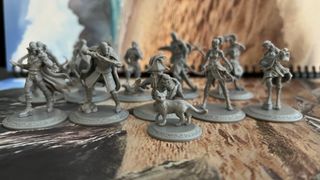
It was clear that the stress of the difficult development process weighed on the team – some of it still felt through Kieron’s peppering of self-deprecating jokes about the project’s delay throughout the evening. Despite this, his satisfaction in the end-product of this struggle was fiercely palpable too. “Taking responsibility for a project that has actually got that many backers, it adds a weight that you just don't realize," he says. "That’s why the relief is there that we've delivered and we’ve made a game that we would love to play, we want to play and enjoy. The narrative, the combat, there’s so many things we can be proud of.”
What’s most heartening is that the passion with which those at Larian talked about Divinity Original Sin: The Board Game didn’t seem solely born of their personal investment in its success. It was also forged from their adoration for the best tabletop RPGs as a whole. Though with a staff full of D&D nerds, that’s to be expected.
As Kieron put it, “I think the video game experience these days captures a lot, especially with multiplayer and the way we design our video games but there is something special about rolling dice with your friends around the table. There’s something tabletop games can do in a unique way. It’s not exactly better but it’s different – there's nothing like that experience where you roll that perfect dice roll and you all cheer.”
I’ll admit my dice rolls weren’t always so perfect in my time playing, but the point remains – Divinity Original Sin: The Board Game is still something pretty special.
Sign up to the 12DOVE Newsletter
Weekly digests, tales from the communities you love, and more
Check out these board games for adults or the best card games for more tabletop gems worth adding to your collection. Alternatively, if you need something that'll please grown-ups and kids alike, give one of the best board games for families a try.

Abigail is a Tabletop & Merch writer at Gamesradar+. She carries at least one Magic: The Gathering deck in her backpack at all times and always spends far too long writing her D&D character backstory. She’s a lover of all things cute, creepy, and creepy-cute.
Most Popular




